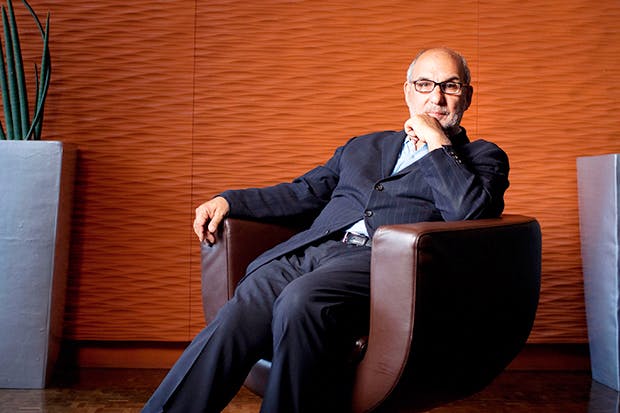Why is Alan Yentob still in charge of a seven-figure programme budget at the BBC? It’s a question that Yentob’s friend, BBC chief Lord Hall, should have asked himself a long time ago. It should be asked this week because Yentob is entangled in an Insolvency Service investigation which may be about to come to an end.
As part of its ongoing inquiry into the notorious charity Kids’ Company, which Yentob chaired for 12 years until it closed in August 2015, the Insolvency Service has reportedly offered Yentob a deal. He has apparently been asked to accept by 20 December a five-year ban from holding any company directorships. If he does so, a line will be drawn under his part in the affair as far as the Insolvency Service is concerned. If he refuses, formal disqualification proceedings will begin and Yentob may be forced to go to court.
Given that Kids Company burned through the best part of £50 million of public money in a range of highly questionable ways during its lifetime, some might say Yentob, as the effective money man of the organisation, would be getting off lightly if he accepted the Insolvency Service’s offer. Either way, the Insolvency Service must believe it has grounds to proceed against Yentob, and for this reason we should all be interested in the way he has operated – including Lord Hall. If the Insolvency Service has doubts about Yentob having anything to do with a private concern for the next five years, the same standard – at the least – must surely apply to Yentob’s public sector commitments.
Many newspapers continue to report incorrectly that Yentob ‘quit’ the BBC in the wake of the Kids Company scandal. This is untrue. He was allowed by Hall to stay in his executive post (Creative Director) until it became clear he was about to be investigated by the BBC Trust. He was then allowed by Hall to step down as Creative Director in December 2015 but to remain on the staff of the BBC as presenter/editor of an arts programme called Imagine, thereby avoiding the probe. For his trouble, he is still paid a salary of between £200,000 and £250,000. Having worked at the BBC since 1968, his pension is also intact and ranks as one of the biggest in the public sector.
As chairman of Kids Company’s trustees, Yentob seems to have taken a casual view of other people’s money as it poured in. Under his watchful eye, cash handouts to children were routine. Expensive presents and holidays for some of chief executive Camila Batmanghelidjh’s ‘favourites’ were tolerated. The children of some staff were sent to fee paying schools. Batmanghelidjh even spent £200,000 renting a Grade II listed house in London as a home for underprivileged children. She used its indoor pool – the children were banned from it. I could go on.
As I have previously reported, Yentob also secretly lobbied the Labour Government in 2002 over a large unpaid Kids Company tax bill which was later mysteriously waived at public expense. The charity deducted £689,000 in employment taxes from staff in 2002 – but did not pass on the money to the taxman. In an email sent on September 18, 2002 from the address of Yentob’s personal assistant at the BBC, and later leaked to me, Yentob said that he had been told by the Treasury that the correct procedure would be to write a letter to minister Dawn Primarolo ‘explaining the situation and the context and she would refer the matter back to the Inland Revenue’. Yentob then added cryptically: ‘I intend to do that tomorrow morning with a little bit of help from my friends…’ Yentob also said in the message: ‘[Treasury minister] Paul Boateng and I have managed to miss each other on the telephone but his office has been extremely co-operative and concerned and a phone call is being set up for tomorrow morning.’ A few months later, £589,957 was written off using taxpayers’ money, with an additional £100,000 debt met by an unidentified donor.
It’s pointless to lobby for Yentob to go because that won’t happen by talk alone. Instead, pressure must now be put on the useless Lord Hall to explain why Yentob remains in charge of a penny of public money.






Comments